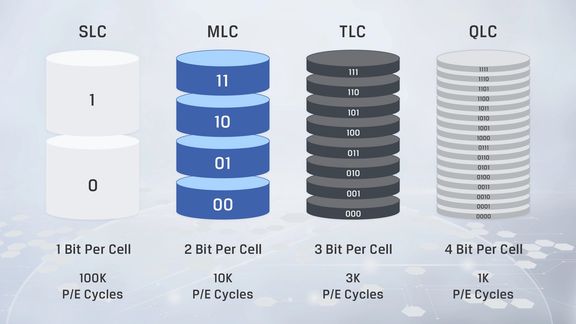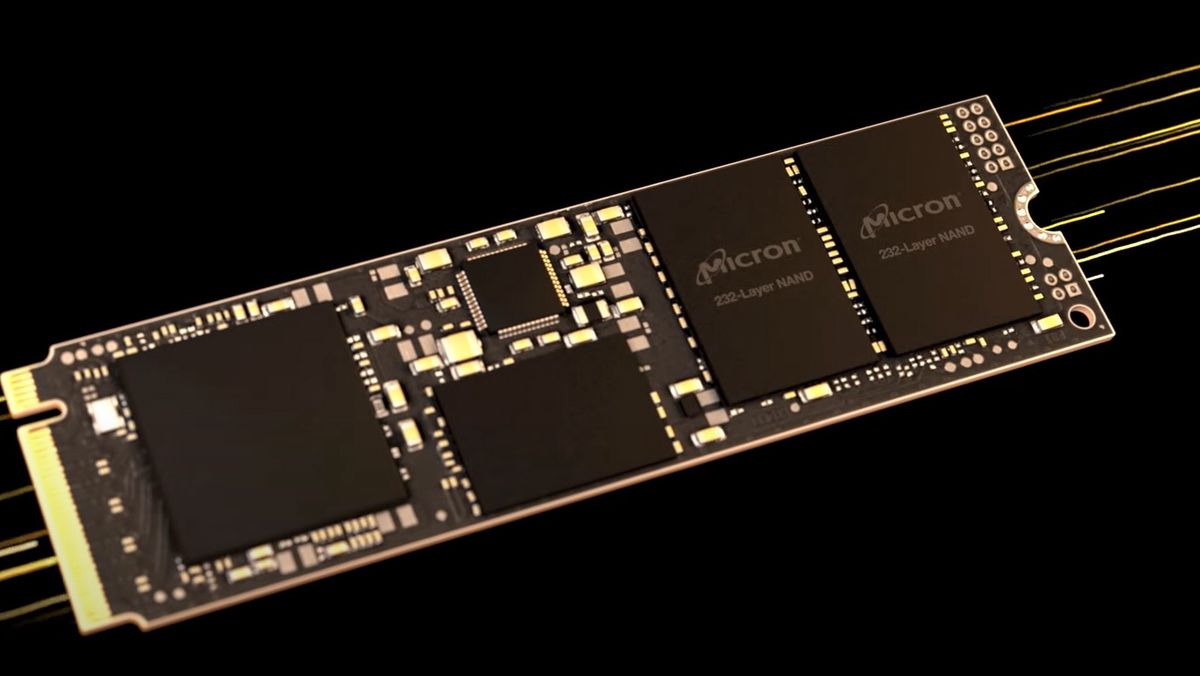Many modern solid-state drives and other flash memory-based storage devices are based on 3D NAND, that is, chips where the cells are not just in one layer, but stacked on top of each other just like the floors of a skyscraper.
So far, 3D NAND products on the market have up to 176 layers, but Micron announced this week That the company not only developed or started production, but can now offer customers 3D NAND chips with up to 232 layers of TLC (Three Level Cell) cells.
The advantages deserve a closer look, but can be briefly summarized as higher performance, higher storage density and better energy efficiency.
Much faster
In many contexts, performance is the most important thing. Micron claims the new chipset has the industry’s highest NAND I/O speed at 2.4Gbps, which should be 50 percent faster than Micron’s fastest interface with today’s 176-layer nodes.
At the same time, it promised up to twice the write bandwidth and more than 75 percent more read bandwidth per flash memory stick than what is now the previous generation.

Among other things, this was achieved by the chips being the first to be divided into up to six separate layers, which can be read independently of each other. According to Micron, this architecture also contributes to reducing collisions between read and write commands.
The new chips will be the first to support NV-LPDDR4 Low Power Data Interface, of which they are Relatively new ONFI 5.0 specification (Open the NAND Flash interface). According to Micron, this should contribute to reducing the power used when transmitting each piece of data by more than 30 percent, compared to previous I/O interfaces.
The new chips have a storage density of 14.6 gigabits per square millimeter. According to Micron, this gives at least 35 percent higher areal density than competing products on the market today. The chip is laminated so that it requires an area of 11.5 x 13.5 mm. That’s 28 percent less space than Micron’s smallest TLC NAND chips to date.
According to Micron, each chip can hold up to 1 terabyte of data.
Coming soon to SSDs
As mentioned, Micron has already started delivering these chips to many customers. This also includes Crucial, Micron’s brand of SSDs for the consumer market. Site and file block estimates The fastest SSDs will be able to deliver read speeds of up to 11.68GB per second, and write speeds of up to 10GB per second, when they rely on the new 232-layer NAND chips. That’s nearly double the speeds of today’s P5 Plus SSD.

According to the record Micron’s new chips could also be good news for parts of the business market, not least when used in systems that require access to data with minimal delays, such as large databases.
“The cheapest and most cost-effective flash helps all applications, but it undoubtedly enables database and analytics environments to have a greater layer of powerful, high-performance portable storage,” Gartner analyst Joe Unsworth told The Register.
The site also raises an element of uncertainty. TLC-based flash memory cells wear out faster than more expensive and less compact cells such as SLC and MLC, which store fewer bits per cell.

Micron has not yet provided information on the duration of the new TLC NAND chips.

“Web specialist. Lifelong zombie maven. Coffee ninja. Hipster-friendly analyst.”




